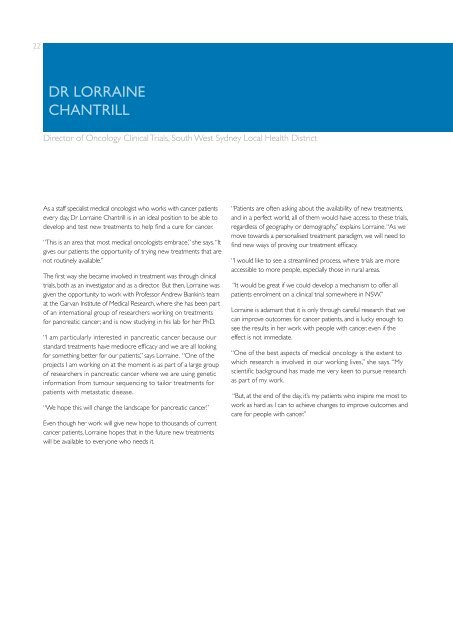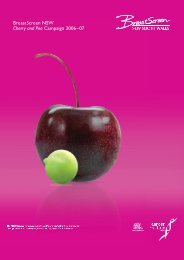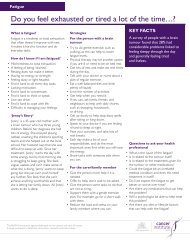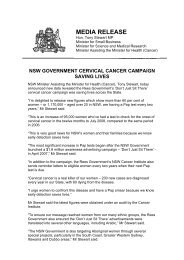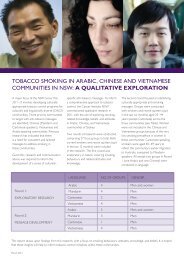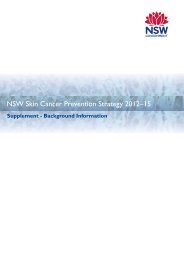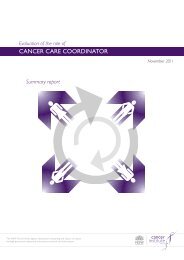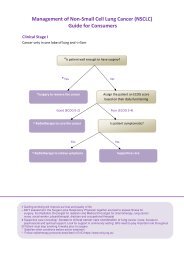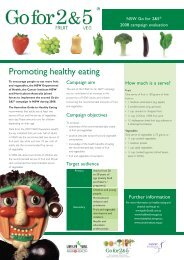NSW Research Achievements Report 2011 - Cancer Institute NSW
NSW Research Achievements Report 2011 - Cancer Institute NSW
NSW Research Achievements Report 2011 - Cancer Institute NSW
Create successful ePaper yourself
Turn your PDF publications into a flip-book with our unique Google optimized e-Paper software.
22Dr LorraineChantrillDirector of Oncology Clinical Trials, South West Sydney Local Health DistrictAs a staff specialist medical oncologist who works with cancer patientsevery day, Dr Lorraine Chantrill is in an ideal position to be able todevelop and test new treatments to help find a cure for cancer.“This is an area that most medical oncologists embrace,” she says. “Itgives our patients the opportunity of trying new treatments that arenot routinely available.”The first way she became involved in treatment was through clinicaltrials, both as an investigator and as a director. But then, Lorraine wasgiven the opportunity to work with Professor Andrew Biankin’s teamat the Garvan <strong>Institute</strong> of Medical <strong>Research</strong>, where she has been partof an international group of researchers working on treatmentsfor pancreatic cancer; and is now studying in his lab for her PhD.“I am particularly interested in pancreatic cancer because ourstandard treatments have mediocre efficacy and we are all lookingfor something better for our patients,” says Lorraine. “One of theprojects I am working on at the moment is as part of a large groupof researchers in pancreatic cancer where we are using geneticinformation from tumour sequencing to tailor treatments forpatients with metastatic disease.“We hope this will change the landscape for pancreatic cancer.”Even though her work will give new hope to thousands of currentcancer patients, Lorraine hopes that in the future new treatmentswill be available to everyone who needs it.“Patients are often asking about the availability of new treatments,and in a perfect world, all of them would have access to these trials,regardless of geography or demography,” explains Lorraine. “As wemove towards a personalised treatment paradigm, we will need tofind new ways of proving our treatment efficacy.“I would like to see a streamlined process, where trials are moreaccessible to more people, especially those in rural areas.“It would be great if we could develop a mechanism to offer allpatients enrolment on a clinical trial somewhere in <strong>NSW</strong>.”Lorraine is adamant that it is only through careful research that wecan improve outcomes for cancer patients, and is lucky enough tosee the results in her work with people with cancer, even if theeffect is not immediate.“One of the best aspects of medical oncology is the extent towhich research is involved in our working lives,” she says. “Myscientific background has made me very keen to pursue researchas part of my work.“But, at the end of the day, it’s my patients who inspire me most towork as hard as I can to achieve changes to improve outcomes andcare for people with cancer.”


